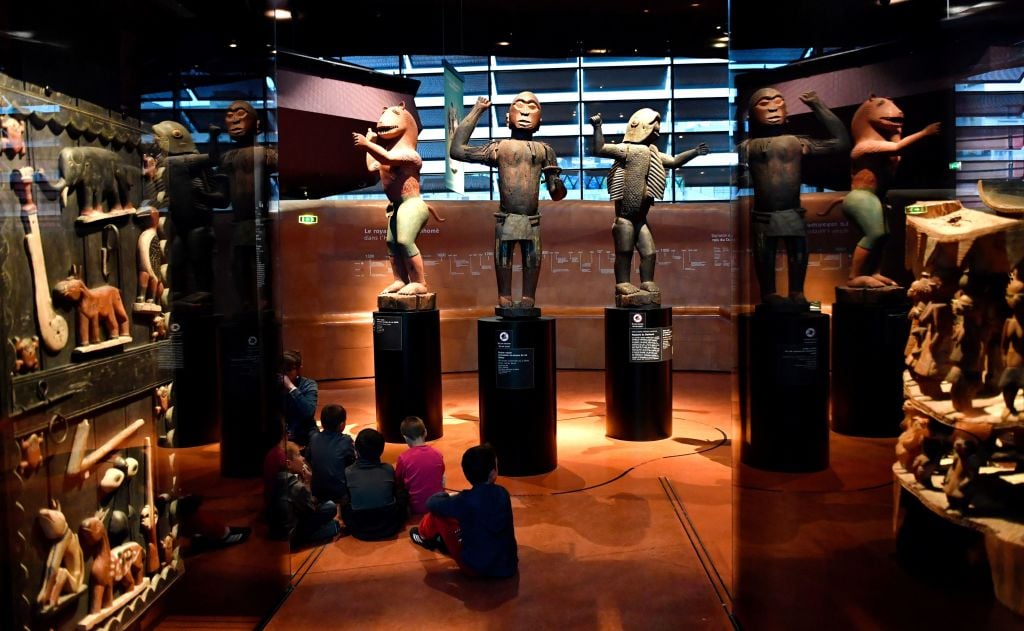
More than two dozen objects being restituted to the Republic of Benin will make a brief stopover at Paris’s Musée du Quai Branly before heading back to the African nation.
The collection of 26 objects, which includes statues, thrones, and ceremonial hatchets, originated in the historic kingdom of Dahomey, in present-day Benin, and were looted when war broke out with French colonial forces in the 1890s. The exhibition at the Quai Branly, which runs from October 26 through October 31, will be accompanied by events and programming that considers the history of the pieces from their creation to their removal from the country.
At the end of 2020, after years of growing public pressure on France and other European countries to atone for their colonial misdeeds, French officials voted on a heritage law mandating the transfer of ownership of the Benin objects. The collection may be returned as soon as next month, pending both countries’ ratification of the restitution.
Emmanuel Kasarhérou, president of the Musée de Quai Branly, told French newspaper Le Monde that the aim was not to do a return “on the sly, with only boxes in transit,” but to showcase the pieces’ complex history.
The first and second Franco-Dahomean wars took place in 1890 and between 1892 and 1894, respectively. After Dahomey’s King Béhanzin retreated during the second conflict, the French stole royal objects as part of their spoils, including the pieces that are now at the Paris museum. General Alfred-Amédée Dodds, who led the wars from the French side, gifted the 26 pieces to Paris’s first ethnographic museum, the Musée d’Ethnographie du Trocadéro, in 1893 and in 1895. They have been in French national collections for 130 years.
The collection will be transferred to the Ouidah Museum of History in Ouidah, Benin, before heading to the former location of the royal palaces of Abomey, a UNESCO world heritage site where Benin is building a museum. France is helping finance the project, which will cost €35 million ($40 million) in loans and grants; it began in early 2021 and is expected to take five years to complete.
Benin will accept the return, according to its statement, but it is doing so with muted applause. President Patrice Talon said the returns give him “relative satisfaction.” The Art Newspaper reports that the African country is seeking full restitution of the holdings in France, which number far beyond the 26 pieces.
Kasarhérou of the Quai Branly said that further restitutions could take place, but that it is ultimately a decision beyond the museums’ authority, resting with the state.
“For the past three years, we have been working to identify objects acquired without consent, in a violent manner,” he told Le Monde. “Our role is to provide as much information as possible about the origin of these items.” He added that requests have been received from Mali, Chad, and the Ivory Coast.
In 2017, French president Emmanuel Macron promised to make restitutiona priority within the next five years. Following that turning point, the French government commissioned a report, coauthored by Felwine Sarr and Bénédicte Savoy, which outlined the urgent need to return objects that were stolen.